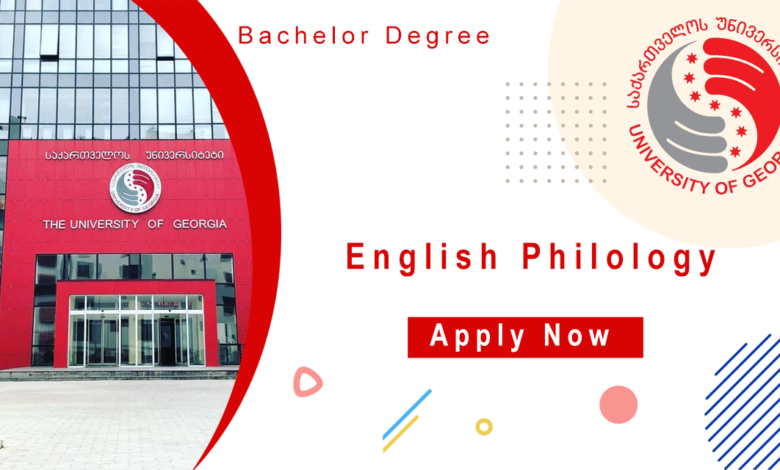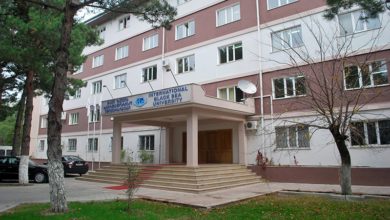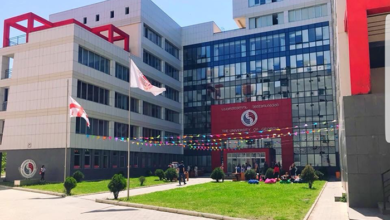Study English Philology at University of Georgia

University logo:

Program name: English Philology
University name: University of Georgia
Faculty: School of Arts and Humanities
Program supervisor: Chkheidze Maia –Ph.D, Associate Professor
Web-page: https://www.ug.edu.ge/
University address: 77a, M. Kostava Str. Tbilisi 0171, Georgia
Representative email: enroll@orientcities.com
English Philology Program Overview
Considering the complexity of the field of philology, the program is designed to mold high qualified professionals with the competence relevant to humanitarian thought, pedagogical activities, and effective communication. The program is in full compliance with the university mission – “to expand knowledge boundaries and educate a person”… The mission is attainable due to the standards of academic honesty, practice-based professional activities, as well as due to the scientific advancements supporting sound, human and democratic development of the society to favor eventually well-being of the nation and humankind. Development of the research and practical skills relevant to the Bachelor’s competence, provided by the synthesis of the theoretical and practical courses, supports the achievement of the program goals. Student-oriented teaching is aimed at developing creative thinking, meeting the students’ diverse interests and demands, forming the skills required to adhere to the standards of academic honesty, ethical and professional norms, and shaping the skills needed for accepting national and international values. The competencies developed in the premises of the program enable the graduate to be employed in publishing houses, the system of the means of mass communication, and in the companies where the demand for English-languaged professional communicators is evidenced. Considering the changing demands of the labor market, the subjects focused on the development of the English language teaching competencies are integrated into the program. The bachelor program of English Philology provides the students with the knowledge meeting the modern standards of humanitarian thought and equips future marketable professionals with extensive knowledge of the philological and adjacent fields. The program provides the graduate with the opportunity to continue studies on the adjacent specialties. The mentioned opportunity is provided by academic staff and educational components integrated into the program.
Methods for Attaining Learning Outcomes:
- Workbook methods;
- Explanatory method;
- Demonstration method;
- Interactive Lectures;
- Laboratory;
- Presentations;
- Search the relevant material in electronic format or libraries;
- Deliver presentation;
- Written work method;
- Teamwork method;
- Role-playing;
- Case Study
- Essays;
- Verbal/Oral method;
- Discussions/Debates;
- Lecture-seminar.
- Oral exam
Learning Outcomes:
Skills
Graduate Knows:
- Methodological and theoretical fundaments of the field of philology;
- The specifics of grammatical norms and vocabulary relevant to the competent use of English and independent use of second European (compulsory elective) language;
- Learning, teaching and assessment strategies, approaches, theories and methods;
- The main periods of World History;
- Basic principles of academic writing and (APA) academic style standards;
- The specifics of office computer programs.
Describes:
- The essence of the relationship between language and thought, language and society, the peculiarities of linguistic research in the contexts of sociolinguistics, psycholinguistics and applied linguistics;
- The specifics of the concepts and theories of literary studies, peculiarities of functioning the system of literary theory and the development of literary genres.
Graduate:
- Analyzes and synthesizes the results obtained by applying the methods and principles relevant to the field of philology (the principles of phonemic and morphemic analysis; the method of transformational analysis; the principle of hyponymy; hermeneutical analysis of the text and the principles of literary criticism etc.);
- While producing clearly structured, complex oral and written texts in English, applies relevant communicative strategies, constructs relevant arguments and logically substantiates one’s own critical views on complex issues, conducts adequate communicative activities in a variety of communicative contexts;
- When producing oral and written texts in a second European language, consistently describes the events, one’s own experiences and impressions within the framework of a familiar topic with syntactically correct and well-developed meaningful sentences;
- Applies teaching and learning methods and strategies, develops knowledge-based logical judgments about real and hypothetical situations while analyzing the approaches, theories, and methods of the professional sphere (Theories of development: Theory of teaching and learning; Behavioral Theories; Theories of cognitive development, etc.);
- Searches for the material in different recourses to develop well-grounded conclusions deliver information to professionals (philologists), as well as non-professionals (general public) by applying modern information technologies in formulating and presenting clearly and consistently the issues relevant to the field of philology.
Responsibility and autonomy
Realizing the complexity of the field of philology and adhering to the standards of academic honesty, takes responsibility for professional development by comparing, contrasting, synthesizing, and representing the data in the papers prepared by him/her (term paper, project, undergraduate thesis).
Teaching Process Characteristics:
The Bachelor program (English Philology) of the School of Humanities at the University of Georgia allocates 240 ECTS credits needed for gaining academic degree in English Philology in the following way:
- 186 ECTS are allotted to the major subjects of the program, 12 ECTS being allotted to the completion of the Bachelor thesis and 6 ECTS – to pedagogical practice;
- 42 ECTS – Electives (24 ECTS – second European language, 18 ECTS any suggested subject )
12 ECTS – Free credits
| AVAILABLE SPECIALIZATION | THE DEGREE AWARDED | AMOUNT OF ALLOCATED ECTS | DURATION OF STUDY | THE LANGUAGE OF STUDY | ANNUAL INSTALLMENT |
|---|---|---|---|---|---|
| English Philology | Bachelor of English Philology | 240 ECTS | 4 years, 8 semesters | English | $3 000 USD |
Register Now!!! and Begin Your Journey Towards Becoming a Certified Bachelor of English Philology!
Representative email: enroll@orientcities.com
The documents required to obtain admission:
- Copy of the passport;
- School certificate (Equivalent to A level for Undergraduate Applicants / BA degree Diploma (for MA degree applicants) along with transcript;
- Application fee payment receipt.
- Video Interview (Ask us for details of this interview)
- The student’s E-mail address and contact details



